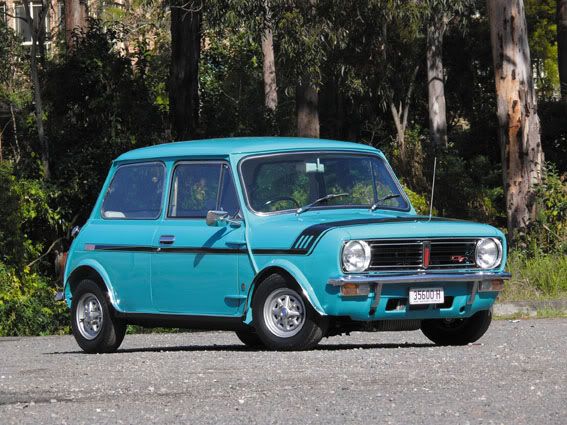 South African 1275GT
South African 1275GT
"While the Clubman story was very different in Australia, as detailed in Issues 19 and 25, the South African Clubman had its own unique history – particularly the 1275GT. Like Australia, South Africa dictated local content levels to obtain import excise rebates and greater tariff protection. However, where Australia’s local content rules were based on a percentage of production cost, South Africa’s was based on a percentage of vehicle weight."
"Based on the UK 1275cc Cooper S engine block, the South African engines featured integral side covers and an internal oil filter gallery, which allowed the filter to be placed high on the block, above the starter motor. Like the Cooper S engine, the bore was 70.64mm and the stroke was 81.33mm to achieve 1275cc. 1098cc was easily achieved with a shorter-stroke crank and different pistons (and requiring a different camshaft), giving a stroke of 69.85mm – as opposed to the 68.26mm of the 1071cc Cooper S.
This allowed a great deal of interchangeability of parts which, combined with the 1275cc unit being used in the ADO16 models and a local 1300 Marina, provided a significant cost saving over using different engines.
With this background, the South African Mini Clubman was released on 6 August 1971 – ten days before the Clubman was released in Australia. Unlike the Aussie Clubman, though, the Springbok version looked very much like the UK version, with concealed door hinges, full-width winding windows and no door pockets."
http://miniexperience.com.au/issue-26/1275gt.html


